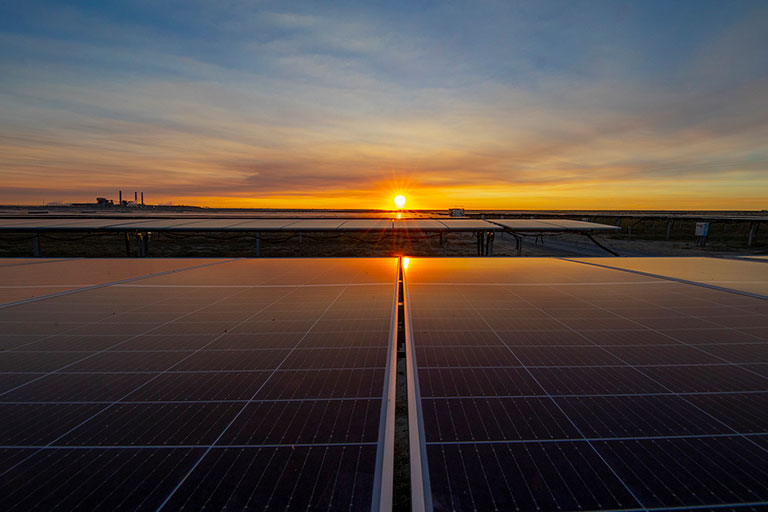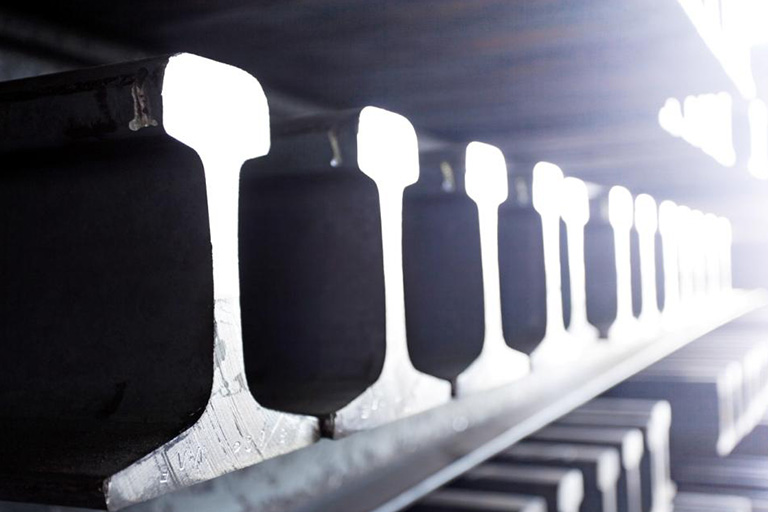The integration of solar energy is helping usher in a new era of more sustainable steel production, with facilities making the switch to renewable power.
As the world becomes more and more focused on limiting the global temperature rise, industries across the planet are working to limit their emissions and use of fossil fuels where possible, including giants such as Amazon, Apple and Walmart.
Following this boom in demand for renewable energy technologies, steel-making facilities are increasingly exploring the opportunities that solar represents for steel production.
Steel is a resource- and emissions-heavy industry but is also one that plays a vital role in producing the materials needed for the transition to a more sustainable global economic model. Wind turbines, solar farms, hydroelectric dams, and more, are all steel-intensive infrastructure that underpin renewable energy production.
If the world is to successfully limit the impacts of climate change, it will be relying on steel to help it get there. The industry has been hard at work on improving the efficiency of its operations – producing a tonne of steel takes 40% less energy than it did in 1960 – and solar is set to play a key role in improving steel’s sustainability.
 Using solar power in its production allows EVRAZ to create more sustainable steel.
Using solar power in its production allows EVRAZ to create more sustainable steel.
The world’s first solar-powered steel mills
Traditional steel production uses large amounts of fossil fuel energy to generate the temperatures needed, but the industry is working hard to find alternative ways of powering this process. Indeed, three of the world’s top steel producing companies are already taking the leap towards solar powered steel production.
In Pueblo, Colorado, EVRAZ North America has announced that solar energy will power its steelmaking operations there. The Pueblo site operates an Electric Arc Furnace that can produce finished steel from recycled ferrous scrap, making it Colorado’s largest recycler, and its recently unveiled Bighorn solar project will reduce emissions and make the mill the world’s first to be powered largely by solar energy.
 Modern steelmaking techniques allow EVRAZ to create longer rails, meaning safer, quieter train journeys.
Modern steelmaking techniques allow EVRAZ to create longer rails, meaning safer, quieter train journeys.
The project boasts a 300-MW DC / 240 MW AC solar field located on 7.3 km2 of land, making it the largest on-site solar facility in the US dedicated to a single customer. The site’s 750,000 solar panels provide nearly all the plant’s annual electricity demand.
“This pioneering partnership will make EVRAZ North America the industry leader in the use of renewable energy to produce the greenest steel and engineered steel products in the world, from rail to rod & bar,” said James Skip Herald, president and CEO of EVRAZ North America.
Nucor, a North American steel producer, is also working on a 250MW of solar energy project to be constructed in Texas. Unlike the single site Pueblo facility, this project will produce electricity that will contribute to powering Nucor’s entire North American operations.
The Nucor project involved the signing of a virtual power purchase agreement with EDF renewables North America that will run for 15 years, in a deal that is the largest of its kind for the steel industry.
“Nucor is one of the most efficient and cleanest steel producers in the world and we are always looking for ways to reduce our carbon footprint,” said Leon Topalian, President and CEO of Nucor Corporation. “That is why we are proud to make our production process even cleaner by supporting the development of this solar energy project.”
Construction is expected to begin in the summer of 2022 with electricity production slated to begin in 2023.
On the other side of the world, Tata Steel and Tata Power are working together on a grid-connected 41MW solar project in Jharkhand and Odisha, India. Using rooftop, floating and ground-mounted solar panels, the project will produce solar power for the Jamshedpur and Kalinganagar steel-making facilities, saving 45,210 tonnes of CO2 per year.
T V Narendran, CEO & MD of Tata Steel, said, “We have taken several definitive steps across the value chain to reinforce our sustainability credentials. We will continue with our pursuit of clean energy solutions and expand our renewable energy footprint.”
In 2017, the two companies also collaborated on the commissioning of a 3MW photovoltaic power plant at Tata Steel’s iron ore mine in Noamundi. This made it the first solar powered iron mine in the country, and underlined Tata Steel’s commitment to whole lifecycle thinking in its approach to reducing the emissions associated with steelmaking.
Steel produced by these innovative companies will be among the greenest on the planet, but as the industry increasingly moves away from coal powered operations, the world’s steel is only set to get more sustainable.
Images: Lightsource bp, EVRAZ